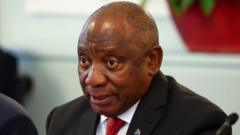在条款趋向同质化的万千寿险产品中,低廉的价格可能对你极具诱惑力,但保险公司偿付能力才是选购产品应重点考量的关键因素。各类专业的术语背后,哪些寿险公司的偿付能力足够强?安全垫足够厚?整体而言,寿险业偿付能力趋势如何?
历经近9个月的科学测评,南方周末新金融研究中心基于“定性定量指标测评”“专家评审”和“线上线下调研”三大维度研制而成2025年“金标杆—寿险偿付能力榜”终榜(下称“寿险偿付能力榜终榜”)。
作为2025年“金标杆—新金融竞争力榜”(下称2025年“金标杆”,详见《五大行业,近400家机构,谁才是“金标杆”?》) 17个子榜之一,“寿险偿付能力榜终榜”遵循“金标杆”自诞生之日起便确立的客观、科学、公正和透明四项原则。
寿险偿付能力榜终榜显示,在分组测评中,中国人寿、友邦人寿和北京人寿领榜各组,其中中国人寿得分最高,是35家受测评机构中得分唯一超过70分的机构。这比受测评机构中最低得分者高出近45分。机构之间分化明显。
2025年三季度,因受市场利率变化、资本市场波动和新会计准则调整等因素影响,大部分受测评寿险公司偿付能力环比下降。展望四季度,偿付能力下降趋势成为共识。应对之法指向加强资产负债管理,一手调整产品销售结构,一手提升财务稳定性较高的高股息权益资产的配置。
35家入围
较之初榜(详见《75家寿险公司,为何仅有53家入围偿付能力测评?》),寿险偿付能力榜终榜测评对象及测评方法有何变化?
在初榜基础上进行数据更新,同时增加“专家评审”和“线上线下调研”两大维度。这是“金标杆·新金融竞争力榜”之银行保险榜自问世以来坚持的“三维测评”方法论。
为保持银行保险业榜单数据截取时间的一致性,寿险业偿付能力榜终榜“定性定量测评”维度数据与初榜一致,即截取至2025年二季度偿付能力报告及相关数据,并按70%折算计入总分。
较之初榜53家寿险公司入围并被以资产规模不同分为“万亿组”“千亿组”“百亿组”三组,寿险偿付能力榜终榜入围名单有所不同。为与寿险业其他子榜保持一致,此终榜仅有35家寿险公司进入“专家评审”和“线上线下调研”环节。入围名单集中在万亿组和千亿组,百亿组仅有6家入选。
与寿险业其他子榜一致,寿险偿付能力榜终榜数据测评部分也采用分组测评方式,评审团在投票环节亦在同组中比较打分。与此同时,评审团投票虽然仍沿用“赢家通吃”规则,但与以往每名专家针对不同榜单选择三家保险公司不同,此次专家投票范围根据组中受测评机构数量而变化。在计分时,受测评机构理论上最高可获得11票,计15分。如不满11票,则按相应比例折算。
深调研维度,依据各机构对调研问卷的回复情况及内容进行打分。基于以上逻辑,寿险偿付能力榜终榜指标体系如下图。

尽管三季度偿付能力报告相关数据未进入数据测评范围,但南方周末新金融研究中心研究员研究了各机构已披露的相关报告,以呈现寿险业偿付能力的趋势性和个体化差异。
中国人寿高居榜首
三维测评之下,哪家寿险公司履行赔付义务能力更强?
寿险偿付能力榜终榜显示,在万亿组的9家公司中,中国人寿高居榜首,平安人寿位居次席,太平人寿紧随其后。较之其他两组,此组得分普遍较高,但末名中邮保险得分与中国人寿相差仍近30分。

万亿组各公司偿付能力呈现何种态势?南方周末新金融研究中心研究员查阅研究万亿组受测评寿险公司2025年三季度偿付能力报告后发现,该组9家寿险公司核心偿付能力充足率和综合偿付能力充足率均环比下滑。其中中国人寿降幅最小,核心偿付能力充足率微降2.04个百分点,综合偿付能力充足率下降7个百分点。
中国人寿三季度报告数据显示,该公司各项业绩实现高位突破。总保费、新单保费和续期保费均实现两位数增长。
在保费业绩向好和权益投资收益大增的情况下,中国人寿偿付能力为何反而下降?南方周末新金融研究中心研究员调研发现,主要受市场利率下行和新会计准则调整所致。该组多家受测评寿险公司因利率波动而增加市场风险最低资本计提。其中中国人寿市场风险最低资本增加人民币636.04亿元。
为何利率环境变化会对寿险公司的偿付能力产生很大影响?从产品角度分析,由于保险产品定价发生在保险产品销售之前,如果预定利率或一些保险产品的最低保证利率设定过高,当利率下降时,实际投资收益率可能低于预定利率,即出现利差损;评估准备金负债贴现率如果下降,准备金负债亦会增加。
从资产配置角度而言,寿险公司以出售长期保险产品为主要经营活动,资产负债整体上呈现 “长负债、短资产”特点,负债久期长于资产久期。在利率长期下行环境下,负债增加幅度会超过资产的增长幅度,造成实际资本下降,进而影响偿付能力。但2025年权益投资收益颇丰,对各寿险公司形成较强支撑。
友邦人寿守住第一
千亿组中,共有20家寿险公司,是成员最多的一组。
寿险偿付能力榜终榜显示,友邦人寿是该组唯一得分超过70分的受测评机构,排名与初榜一致,位居该组第一。招商信诺和建信人寿进入前三,亦是唯二得分超过60分的机构。

分维度看,友邦人寿在“定性定量指标测评”和“专家评审”维度得分均排在第一,建信人寿与友邦人寿均得到9张专家票,招商信诺和安联人寿获得8张专家票。
遗憾的是,20家机构中,7家得分不足50分,占比超过三分之一。招商仁和人寿得分近30分。这是得分跨度最大的一组,既有70分的友邦,亦有刚过30分的招商仁和人寿,差值约40分。
这组成员的偿付能力有何新动向?南方周末新金融研究中心研究员查阅2025年三季度偿付能力报告发现,友邦人寿偿付能力降幅较大。核心偿付能力充足率和综合偿付能力充足率环比分别下降46和52个百分点。友邦人寿解释称,主要受资本市场波动及保险合同负债变动影响。
多家受测评公司更预期四季度偿付能力仍会下降。在调研中,不少机构认为,短期内影响偿付能力重大不确定因素有权益市场波动和市场利率变化。
这表明寿险公司刚性负债成本与资产端收益持续下行之间的结构性矛盾尚在。这种矛盾与生俱来,同寿险公司业务模式密切相关。从负债端看,寿险产品可分为储蓄型和投资型。储蓄型保险通常以较高预定利率作为核心卖点吸引客户,这部分负债成本在合同签订后即被锁定,形成保险公司必须刚性兑付的长期债务。
但寿险公司将保费投资时,其实际投资收益受宏观经济环境、货币市场、资本市场和监管政策等多重因素制约,投资收益充满不确定性。尤其当储蓄型保险在总保费中占比过高时,会大幅增加高成本负债的规模。寿险公司在低利率环境下难以找到足够多能覆盖成本的安全资产,最终导致“资产端收益<负债端成本”的倒挂现象,进而侵蚀保险公司利润和偿付能力充足率。尽管资本市场2025年持续向好,但寿险公司基于安全因素重点配置依旧在债券市场和货币市场。
如何应对?近年来监管持续引导行业下调新产品预定利率,推动产品结构从“高保底刚兑”的增额终身寿险向“低保底+浮动收益”的分红险转型。
招商信诺在接受调研时的回复反映了行业心声。该公司认为,一是提升财务稳定性较高的高股息权益资产的配置,并辅以逆周期操作与再平衡以控制波动。二是推动分红型产品销售来降低权益市场波动对偿付能力的影响。三是考虑适度引入市场中性、量化对冲等绝对收益策略,进一步降低回撤,实现收益增强与风险控制的平衡。
北京人寿跃升
在终榜中,百亿组总体得分比较集中。
寿险偿付能力榜终榜显示,与初榜相比,北京人寿跃升11位,登顶榜首。中华人寿和东吴人寿仍居前三,但座次易位。

北京人寿为何逆袭成为第一?该组中,东吴人寿及小康人寿未获得任何专家评审投票,而北京人寿在“专家评审”和“线上线下调研”维度均获得最高分,进而抬升总得分。
2025 年三季度,北京人寿综合偿付能力充足率为 179.47%,较上季度末下降了 10.6 个百分点,核心偿付能力充足率为 97.63%,较上季度末下降了 8.75 个百分点。
针对市场利率下行趋势,北京人寿表示,一方面,动态调整债券型资产的配置策略,积极运用配置结构调整和阶段性交易机会,有效控制利率敏感资产风险价值(VAR值);另一方面,适度增加权益类资产的配置,在有效控制短期回撤风险的前提下实现投资收益。
欢迎分享、点赞与留言。本作品的版权为南方周末或相关著作权人所有,任何第三方未经授权,不得转载,否则即为侵权。















